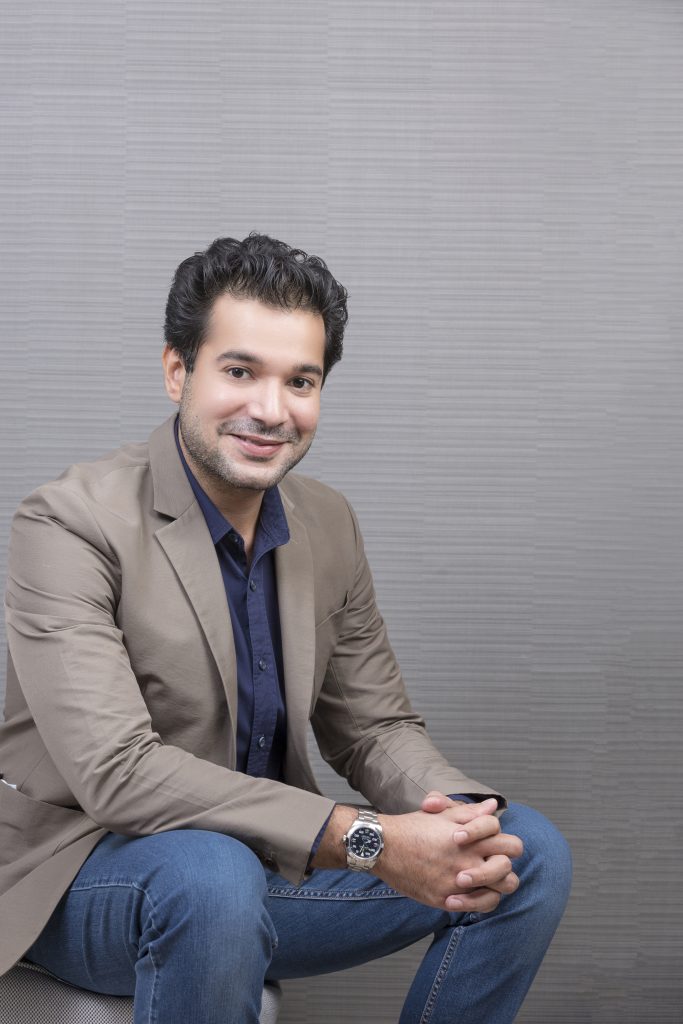How he’s leading by example.
By Ashima Sethi
Electronic commerce, also known as eCommerce, is one of the few industries that have grown immensely as a result of the COVID-19 pandemic. Doing our shopping by visiting one of the city’s many mega malls has always been Central to life in Thailand, but now with the option to shop via online marketplaces and social media platforms, it’s undeniable that our behaviours as consumers have changed and will continue to change as more channels are introduced. An expert in the field, Masala sits down with Nikhil Dodani to discuss his professional journey and how he transitions traditionally offline businesses into online gold.
Can you tell us a little bit about your background?
I was born and raised in Bangkok where I completed the Certificate of International Baccalaureate (IB) at Ruamrudee International School (RIS) in 2007. I then pursued a Bachelor’s Degree in Business Administration at Assumption University.
Why did you decide to pursue a business degree; were you always passionate about pursuing a career in this particular field?
Like many other Thai-Indians, I was raised with the expectation that I would join the family business at some point. My father is in trading and real estate with businesses based in both Bangkok and Hong Kong, so it seemed natural for me to pursue a degree in Business Administration with a Marketing major.
When I graduated from college, eCommerce was still extremely novel in Thailand. This was around the time that Agoda, Expedia, and Lazada were all emerging in the market and I saw it as an extremely attractive business opportunity. So to get started in the field, I joined an online travel agency startup called HotelTrip.
From HotelTrip to the position you hold now, can you tell us about your career path? What were some highlights?
HotelTrip was a great learning experience but I do believe my career began to take off when I joined Lazada Group back in 2013. At that point, Lazada was still a very basic traditional online business where we would ship items to customers from a warehouse. I was then assigned to work on a project called Marketplace, which was getting individual suppliers to join the platform so that they could sell to our customers. This allowed us to take commission for every transaction. Today, Lazada’s Marketplace is 80 percent of their total business.
Once I managed to launch that project and successfully grew it over five years, I decided to move onto something even more corporate—Central Group. My role at this company was fairly similar, as it was to create a marketplace between their many online websites that covered stores like the Central department stores, PowerBuy, Robinson, SuperSports, and OfficeMate. After three and a half years launching this particular project and seeing it grow exponentially online, I decided to move on. As of a month ago I’ve started in my role as Associate Director at CP Group, which I believe is going to be another challenge that will teach me a lot, so I’m really looking forward to the months to come.
Central Group is one of the country’s most recognisable conglomerates. Was it challenging working for such a large company?
My team and I did face challenges, especially because we were coming in to start an online marketplace for a traditionally offline business. Having to change the mindsets of professionals who were in very senior positions, who once considered online business a threat, was definitely challenging. Getting everyone to believe in online potential and to understand its strengths took some time, but today post- COVID, the stakeholders are much more invested in the online business model. I also found that hiring strong tech talent was a challenge as I believe the country is just starting to see the emergence of graduates who are really strong in areas like tech engineering, IT support, and product management.
Can you walk us through some of your general day-to-day responsibilities?
Most of my days consist of back-to-back meetings from 8am to 1pm and they range from upwards meetings with my superior, to meetings with my team members. These meetings are essentially alignment meetings on projects, sharing numbers, and giving each other business updates. The rest of the day consists of execution, so one-on- ones with individual team members and problem solving. Don’t even ask about the number of PowerPoint presentations we’re expected to create daily!
You’ve taken on several leadership roles over the course of your career, is this something that comes naturally to you?
Leadership is definitely not something that comes naturally, but based on my experiences with my previous managers and leaders, I’ve learned how to shape my management style and lead a team in what I consider a democratic form. My approach allows my team to share their entrepreneurial ideas, which gives room for implementing a trial and error method that gives everyone the room to learn along the way through practical approaches. Of course, throughout the process, I try to guide my team as much as they need to ensure minimal risks are taken.
I feel like I’ve grown a lot so I do have my family to thank, as well as my previous bosses who have all taught me really well. My father taught me to be firm and number driven, my mother taught me to be diplomatic, and my wife Monisha has taught me to treat my best performing subordinates like my best friends!
In your opinion, what qualities make for a strong leader?
From my experiences, it’s key to inspire your team in order to keep them motivated. Make sure to communicate well and in-depth, and protect your team as if they’re family. In addition, it’s very important to continue educating yourself on what’s happening in the industry you’re working in on a global level, that way you can be critical and adopt better practices to apply to Thailand’s market in order to win the market. For example, in my field we look at Amazon and Alibaba. Last but not least, if you’re working on a large, corporate level, you have to be diplomatic.
You’ve been working in eCommerce for years now, what are some trends you’ve seen emerge recently as consumer behavior continues to change?
After the COVID-19 pandemic hit, we’ve seen a good 200 to 300 percent increase in the number of online orders every month. I can tell you that none of us anticipated such growth post pandemic, and now online eCommerce firms are struggling to operate in such large scale. What does this mean exactly? It’s a clear indication that the industry is here to stay and it’s a promising one. Young talents should definitely consider eCommerce.
The community has seen many homegrown businesses come out of lockdown, many of which are using online portals to sell their goods. In your opinion, what are the most important things to take into consideration about marketing your product or service online?
Indeed an immense number of homegrown businesses have gone online post lockdown, especially in the food, home, and living category. My advice for food businesses is to invest a little bit of money (as little as 100 THB a day) for a good 60 days into social marketing via Instagram or Facebook. This gives a lot of traction to your account by raising your engagement rate and gaining more followers, which will definitely lead to more conversion. Just remember to target the right audience! For non-food businesses, I strongly suggest joining online marketplaces such as Lazada, Shopee, JD, Facebook Marketplace, and Central. It’s a super simple sign up process and you get to showcase your products on these websites 24/7 with nationwide visibility.
What are some digital marketing trends that you think will emerge in 2021?
Selling via social platforms has proven to be massively successful. The recent partnership between Pomelo and TikTok is a big testament to this. With TikTok being the biggest social media trend now, I envision them partnering with a large number of online businesses to create more of a fun and engaging experience for customers. This way, customers will stay on Apps longer, which will result in a higher share of the wallet for online businesses. Additionally, a lot of Omnichannel perks will start kicking in this year. For example, the ability to order online and pick up at store, the ability to order your product in store through a tablet if there is no stock, and lastly, try-and-buy.
Do you believe you’ll stay in this field as your career continues to progress?
Yes, without a doubt. There’s still a lot more to learn and adopt from key players around the world.
Do you have any goals you’re hoping to achieve in the near future?
I definitely would like to see myself in a C Level or Director Level role within the next two years. As for industry, I don’t envision myself ever moving out of eCommerce or Omnichannel.
What advice can you give young professionals who are just starting out in their careers?
Like my father always told me, traditional offline trading businesses are steadily sinking so it’s important to always look for the opportunity at hand at that particular point in time. In my opinion, today, the industries worth tapping into are technology, A.I., eCommerce, media, healthcare, and energy, so try to pursue a degree relevant to these fields. Always tap into what’s trending or about to trend, this is one way of guaranteeing success.Moreover, don’t get emotional or feel guilty about not following the passage you’ve been ‘trained’ to follow, take smart risks!
Photos taken at Hyatt Regency Bangkok Sukhumvit.








